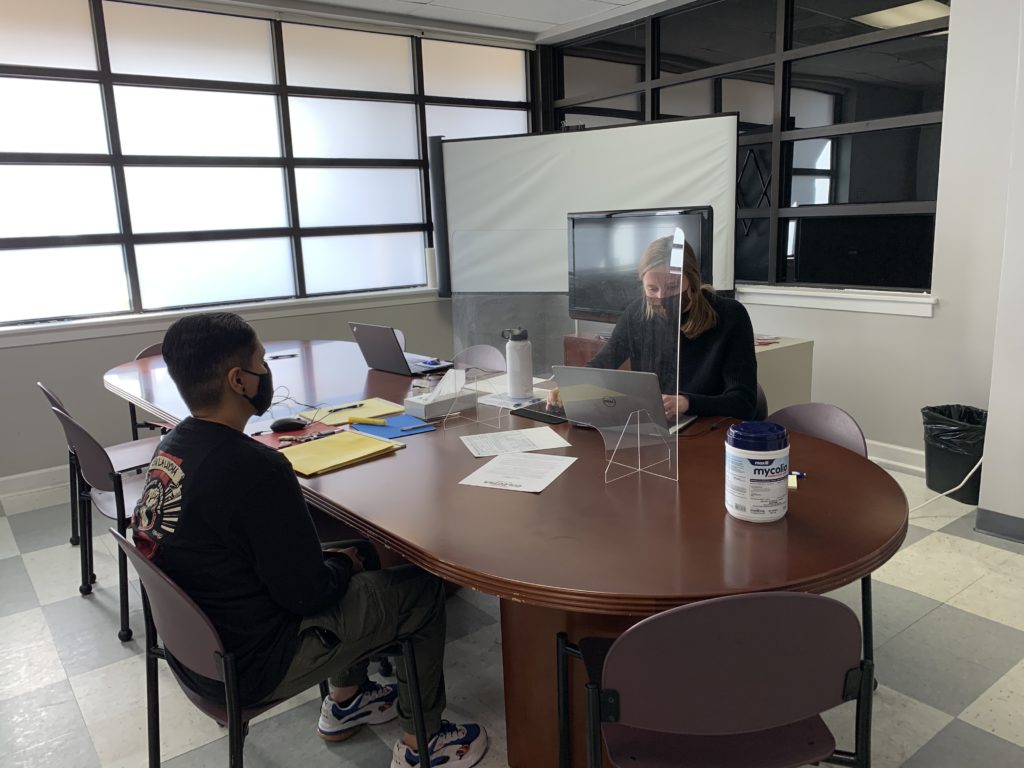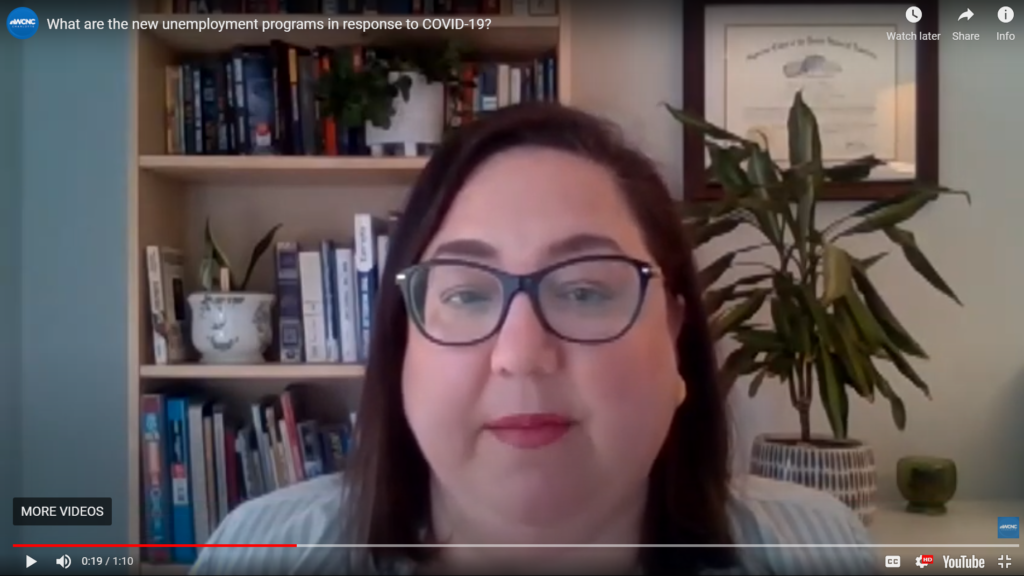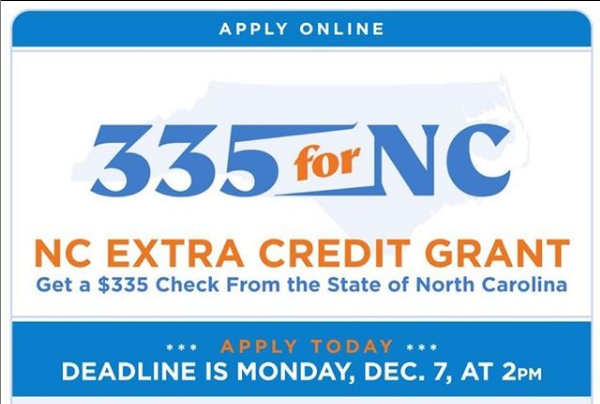*Please note: this article was written in 2021 and may no longer be up to date. Click here for updates on filing your 2021 Federal Income Tax Return, including stimulus payments.
Since the American Rescue Plan was signed into law in March 2021, the IRS has been working to implement provisions of the law and provide guidance to make sure taxpayers can receive Economic Impact Payments (EIP or stimulus checks) and take advantage of new tax credits during this current tax season.
Below are frequently asked questions about the American Rescue Plan will impact this tax season and when people can expect to receive their stimulus checks:
Stimulus Payments
How much is the third Economic Impact Payment (EIP3) and am I eligible?
In this version, the maximum payment is $1,400 per qualified individual or $2,800 for a couple.
In addition, $1,400 payments are now available for all dependents, including children in college and elderly relatives.
As with previous rounds of payments, economic stimulus payments are phased out, based on adjusted gross income. However, the upper threshold is reduced from $100,000 of adjusted gross income to $80,000 for single filers and from $200,000 down to $160,000 for joint filers. Payments for dependents are also phased out under these thresholds.
Mixed-Status Families:
Children of mixed-immigration status families with valid social security numbers are also eligible for the stimulus payments.
For married couples who file jointly and only one individual has a valid social security number (SSN), the spouse with a valid SSN will receive up to a $1,400 payment for themselves and up to $1,400 for each qualifying dependent claimed on their 2020 or 2019 tax return.
For taxpayers who do not have a valid SSN, but have a qualifying dependent who has an SSN, they will receive up to $1,400 per qualifying dependent claimed on their return if they meet all other eligibility and income requirements.
Do I qualify for the March 2021 Stimulus Check (N.C. Justice Center, English and Español)
Military Families:
If either spouse was an active member of the U.S. Armed Forces at any time during the taxable year, only one spouse needs to have a valid SSN for the couple to receive up to $2,800 for themselves, plus up to $1,400 for each qualifying dependent.
When can I expect to receive my Economic Impact Payment (EIP3)?
Most eligible U.S. residents received EIP3 in mid-March through direct deposit or will soon receive it by paper check or pre-paid debit card in the coming weeks.
Social Security and other federal beneficiary recipients who did not receive EIP3 through direct deposit can expect the payment in early April the same way as their regular benefits, though some may receive it as a paper check or pre-paid debit card.
The IRS continues to review data received for Veterans Affairs (VA) benefit recipients and expects to determine a payment date and provide more details soon.
Check your mail
The IRS urges all expecting an economic impact payment through paper check or pre-paid debit card to check their mail frequently and look out for the payment.
The IRS hopes to have all payments issued by the end of May, but you can check the status of your economic impact payment with the Get My Payment tool.
How is my eligibility for the Economic Impact Payment (EIP3) determined?
The amount of the third payment is based on the taxpayer’s latest processed tax return from either 2020 or 2019, information from Social Security or other federal beneficiary organization, or information entered previously through the IRS’s Non-tax Filer Tool.
If the taxpayer’s 2020 return has not been processed, the IRS used 2019 tax return information to calculate the third payment. If the third payment is based on the 2019 return, and is less than the full amount a taxpayer is eligible for, the taxpayer may qualify for a supplemental payment.
After their 2020 return is processed, the IRS will automatically re-evaluate their eligibility using their 2020 information. If they are entitled to a larger payment, the IRS will issue a supplemental payment for the additional amount.
Do I need to take any actions to receive my Economic Impact Payment (EIP3)?
No action is required for most who are eligible for EIP3.
However, some may need to file a simple 2020 tax return to claim the Recover Rebate Credit to receive some or all of any of the three economic impact payments issued from the federal government.
Who may need claim the Recovery Rebate Credit?
The following groups may be among those who should claim the Recovery Rebate Credit and file a 2020 tax return to receive EIP3:
- Recent college graduates,
- Those who were claimed as dependents in 2019,
- Incarcerated or recently incarcerated people,
- Mixed-immigration-status families, and
- Social Security recipients who did not receive a stimulus payment for their dependents.
Learn about the Recovery Rebate Credit here.
What does the third Economic Impact Payment look like (EIP3)?
For those receiving payments in the mail, the IRS urges these taxpayers to continue to watch their mail for these payments, which could include a paper Treasury check, or a special prepaid debit card called an EIP Card.
Paper checks will arrive by mail in a white envelope from the U.S. Department of the Treasury.
The EIP Card will also come in a white envelope prominently displaying the seal of the U.S. Department of the Treasury. The card has the Visa name on the front and the issuing bank, MetaBank, N.A. on the back. Information included with the card will explain that this is an Economic Impact Payment. Each mailing will include instructions on how to securely activate and use the card.
EIP cards issued for any of the three rounds of payments are not reloadable. Recipients will receive a separate card and will not be able to reload funds onto an existing card.
The form of payment for EIP3, including for some Social Security and other federal beneficiaries, may be different than earlier stimulus payments. More people are receiving direct deposits, while those receiving payments in the mail may receive either a paper check or an EIP Card.
Tax Refunds and Updates
When is the tax filing deadline?
The federal deadline for filing taxes has been extended to May 17.
In North Carolina, the deadline for filing state taxes is May 17.
What new tax credits and rebates are available through the American Rescue Plan?
Earned Income Tax Credit:
The American Rescue Plan expands the Earned Income Tax Credit for 2021, raising the maximum credit for childless adults from roughly $530 to close to $1,500, while also increasing the income limit for the credit from about $16,000 to about $21,000, and expanding the eligible age range by eliminating the age cap for older workers.
Child Tax Credit:
The American Rescue Plan includes changes to the Child Tax Credit (CTC) for the 2021 tax year:
- An increase to $3,600 per qualified child under age 6 and $3,000 for a child up to age 17.
- An additional $500 credit is available for dependent children in college who are under age 24.
- The phaseout begins at lower levels of $75,000 of adjusted gross income for single filers and $150,000 for joint filers. But many higher-income families can still claim the $2,000 credit subject to the prior phaseout rules.
The IRS will make advance payments of the credit, beginning in July. The exact logistics of that process are still being worked out.
Read more about changes to the Child Tax Credit here.
Dependent Care Credit
The new law increases the Dependent Care Credit for the 2021 tax year to a maximum of $4,000 for one child and $8,000 for two or more children for households with an adjusted gross income of up to $125,000. But the credit will be reduced below 20% for those with an adjusted gross income of more than $400,000.
Read more about the Dependent Care Credit here
Student Loan Forgiveness Credit
The American Rescue Plan creates a tax exemption beginning in the 2021 tax year for student loans made, insured or guaranteed by the federal or state governments, as well as loans from private lenders and educational institutions. This does not apply, however, to loans that are discharged in exchange for services rendered.
Read more about the Student Loan Forgiveness Credit here
Do I need to pay taxes on unemployment benefits I received in 2020?
The American Rescue Plan exempts from federal income tax up to $10,200 of unemployment benefits received in 2020 by a family with an adjusted gross income under $150,000.
Normally, those benefits would be fully taxable. This tax break is intended to help taxpayers who might be blindsided by an unexpected tax bill on their 2020 returns.
Please note that unemployment benefits are still taxable at the state level and need to be reported as income on North Carolina taxes.
I am eligible for the expanded Earned Income Tax Credit made available by the American Rescue Plan and/or received unemployment benefits in 2020, but I already filed my tax return. What should I do to receive my full refund?
If you claimed the expanded credit on your tax return and/or included your unemployment benefits on your tax return, the IRS will automatically review your tax return again and issue the correct refund beginning in May and continue through the summer. You do not need to file an amended return.
The IRS will do these recalculations in two phases, starting with taxpayers eligible for the up to $10,200 exclusion. The IRS will then adjust returns for those married filing jointly taxpayers who are eligible for the up to $20,400 exclusion and others with more complex returns.
What if I already filed my tax return and did not claim a credit because I was previously ineligible for it?
There is no need for taxpayers to file an amended return unless the calculations make the taxpayer newly eligible for additional federal credits and deductions not already included on the original tax return. For example:
- The IRS can adjust returns for those taxpayers who claimed the Earned Income Tax Credit (EITC) and, because the exclusion changed the income level, may now be eligible for an increase in the EITC amount which may result in a larger refund.
- However, taxpayers would have to file an amended return if they did not originally claim the EITC or other credits but now are eligible because the exclusion changed their income.
- These taxpayers may want to review their state tax returns as well.
The IRS has worked with the tax return preparation software industry to reflect these updates so people who choose to file electronically simply need to respond to the related questions when electronically preparing their tax returns. See New Exclusion of up to $10,200 of Unemployment Compensation for information and examples.
I am eligible for new or expanded rebates/credits made available by the ARP but have not filed my 2020 tax return. What should I do to receive my full refund?
Complete your 2020 tax return as you normally would. The IRS has supplied a new worksheet to reflect the changes and online tax preparer software agencies have been instructed to adapt their programs to reflect the changes.
I have health insurance through the Health Insurance Marketplace (ACA/Obamacare). What should I do about reconciling my financial assistance for coverage premiums this tax season?
The American Rescue Plan Act suspends the requirement that taxpayers pay back all or a portion of their excess advance payments of the Premium Tax Credit for tax year 2020.
What is a Premium Tax Credit
From healthcare.gov: A Premium Tax Credit is a tax credit you can take in advance to lower your monthly health insurance payment (or “premium”).
When you apply for coverage in the Health Insurance Marketplace, you estimate your expected income for the year. If you qualify for a premium tax credit based on your estimate, you can use any amount of the credit in advance to lower your monthly premium (APTC).
In a typical tax year, taxpayers use Form 8962, Premium Tax Credit to figure the amount of their PTC (based on actual annual income) and reconcile it with their APTC (based on the annual income estimated).
If at the end of the year you’ve taken more premium tax credit in advance than you’re due based on your final income, you’ll have to pay back the excess when you file your federal tax return.
If you’ve taken less than you qualify for, you’ll get the difference back through claiming a net Premium Tax Credit.
The Internal Revenue Service has announced that taxpayers with excess Advance Premium Tax Credits (financial assistance) for 2020 are not required to file Form 8962, Premium Tax Credit, or report an excess advance Premium Tax Credit repayment on their 2020 Form 1040 or Form 1040-SR, Schedule 2, Line 2, when they file.
Taxpayers can check with their tax professional or use tax software to figure the amount of allowable PTC and reconcile it with APTC received using the information from Form 1095-A, Health Insurance Marketplace Statement.
For taxpayers claiming a net PTC for 2020:
The process remains unchanged. They must file Form 8962 when they file their 2020 tax return. See the Instructions for Form 8962 for more information. Taxpayers claiming a net PTC should respond to an IRS notice asking for more information to finish processing their tax return.
For taxpayers who have already filed:
Taxpayers who have already filed their 2020 tax return and who have excess APTC for 2020 do not need to file an amended tax return or contact the IRS. The IRS will reduce the excess APTC repayment amount to zero with no further action needed by the taxpayer.
The IRS will reimburse people who have already repaid any excess advance Premium Tax Credit on their 2020 tax return. Taxpayers who received a letter about a missing Form 8962 should disregard the letter if they have excess APTC for 2020. The IRS will process tax returns without Form 8962 for tax year 2020 by reducing the excess advance premium tax credit repayment amount to zero.
Again, IRS is taking steps to reimburse people who filed Form 8962, reported, and paid an excess advance Premium Tax Credit repayment amount with their 2020 tax return before the recent legislative changes were made. Taxpayers in this situation should not file an amended return solely to get a refund of this amount. The IRS will provide more details on IRS.gov. There is no need to file an amended tax return or contact the IRS.
For taxpayers reconciling benefits received prior to the 2020 tax year:
As a reminder, this change applies only to reconciling tax year 2020 APTC. Taxpayers who received the benefit of APTC prior to 2020 still must file Form 8962 to reconcile their APTC and PTC for the pre-2020 year when they file their federal income tax return even if they otherwise are not required to file a tax return for that year.
The IRS continues to process prior year tax returns and reach out to taxpayers for missing information. If the IRS sends a letter about a 2019 Form 8962, the IRS need more information from the taxpayer to finish processing their tax return. Taxpayers should respond to the letter so that the IRS can finish processing the tax return and, if applicable, issue any refund the taxpayer may be due.
See the Form 8962, Premium Tax Credit, and IRS Fact Sheet for more details about the changes related to the PTC for tax year 2020.
Healthcare.gov Premium Tax Credits and Filing Your 2020 Taxes
Learn more about how the American Rescue Plan impacts the Affordable Care Act and your ability to get health coverage here.
How can I check my status of my tax return?
Track the status of your tax refund with the Where’s My Refund? tool at IRS.gov or through the IRS2Go App.
While most tax refunds are issued within 21 days, some may take longer if the return requires additional review.
Taxpayers can start checking on the status of their return within 24 hours after the IRS acknowledges receipt of an electronically filed return or four weeks after the taxpayer mails a paper return. The tool’s tracker displays progress in three phases:
- Return received
- Refund approved
- Refund sent
To use Where’s My Refund, taxpayers must enter their Social Security number or Individual Taxpayer Identification Number (ITIN), their filing status and the exact whole dollar amount of their refund. The IRS updates the tool once a day, usually overnight, so there’s no need to check more often.
Additional Resources
Learn more about the American Rescue Plan
IRS Interactive Tax Assistant (ITA)
File Your Federal Taxes for Free
Ready to File Your 2021 Tax Return?
VITA Offers Free Help Filing 2021 Taxes





